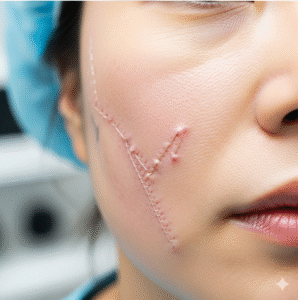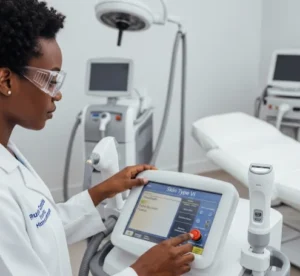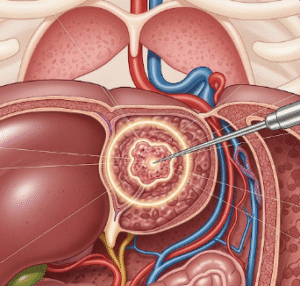Overview
Tinnitus, commonly known as ringing in the ears, is the perception of sound without an external source. It may manifest as ringing, buzzing, hissing, or clicking, and can affect one or both ears. Tinnitus is a symptom rather than a disease itself and often indicates an underlying auditory or systemic condition.
In Korea, ENT specialists (otolaryngologists) evaluate tinnitus using advanced diagnostic tools to identify causes, assess severity, and provide targeted management. Early recognition can improve quality of life and prevent progression.
➤ Perceived sound can be high-pitched, low-pitched, or pulsatile
➤ May be intermittent or constant
➤ Can be associated with hearing loss, dizziness, or ear fullness
➤ Often indicates underlying auditory, neurological, or systemic issues
Key Facts
➤ Affects up to 15–20% of adults worldwide
➤ More common in older adults but can occur at any age
➤ Can be subjective (only the patient hears it) or objective (can be detected by a clinician)
➤ Severity varies from mild nuisance to debilitating
➤ Commonly associated with hearing loss, noise exposure, ear infections, or systemic conditions
What Is Tinnitus?
Tinnitus is the perception of sound without an external stimulus, caused by abnormal neural activity in the auditory pathways. It can arise from issues in:
- Outer ear – earwax blockage or foreign objects
- Middle ear – infections or eustachian tube dysfunction
- Inner ear – cochlear damage from noise, aging, or ototoxic medications
- Auditory nerve and brain pathways – neural disorders or hyperactivity
Tinnitus can be temporary or chronic, with varying intensity. Chronic tinnitus may affect sleep, concentration, and mental health.
What Symptoms Are Related To
Tinnitus may be accompanied by:
➤ Hearing loss or muffled hearing
➤ Vertigo or dizziness (especially with inner ear problems)
➤ Ear fullness or pressure
➤ Headache or facial discomfort
➤ Sleep disturbances or insomnia due to persistent ringing
➤ Anxiety or stress, which can exacerbate tinnitus
What Causes / Possible Causes
Tinnitus has numerous potential causes, including:
Hearing-Related Causes
➤ Age-related hearing loss (presbycusis)
➤ Noise-induced hearing damage (loud music, industrial noise)
➤ Ear infections or otitis media
➤ Earwax impaction
Neurological Causes
➤ Acoustic neuroma (benign auditory nerve tumor)
➤ Multiple sclerosis or other neurological disorders
➤ Temporal-mandibular joint (TMJ) dysfunction
Systemic or Other Causes
➤ Hypertension or cardiovascular disease (pulsatile tinnitus)
➤ Diabetes or metabolic disorders
➤ Ototoxic medications (certain antibiotics, chemotherapy drugs)
➤ Stress, anxiety, or depression
When Should I See My Doctor
Seek medical attention if tinnitus is:
➤ Sudden in onset or only in one ear
➤ Accompanied by hearing loss, dizziness, or vertigo
➤ Persistent for more than a few weeks
➤ Associated with neurological symptoms (weakness, facial droop)
➤ Interfering with sleep, work, or daily life
⚠️ Early evaluation helps rule out serious conditions and provides early intervention.
Care and Treatment
Self-Care & Lifestyle Adjustments
➤ Avoid exposure to loud noises – use ear protection
➤ Limit caffeine, nicotine, and alcohol, which can exacerbate tinnitus
➤ Stress management techniques – meditation, yoga, or counseling
➤ Sound therapy – background music or white noise to mask ringing
➤ Good sleep hygiene to reduce perception of tinnitus
Medical Treatments
➤ Hearing aids – for patients with hearing loss
➤ Cognitive behavioral therapy (CBT) – reduces tinnitus-related distress
➤ Medications – limited role, but sometimes used for associated anxiety or sleep issues
➤ Treat underlying causes – ear infections, wax removal, blood pressure control
➤ Tinnitus retraining therapy (TRT) – combines counseling and sound therapy
Treatment Options in Korea
Korean ENT clinics and hospitals provide comprehensive care for tinnitus:
➤ Diagnostics
➤ Audiometry and hearing tests
➤ Tympanometry and otoacoustic emissions
➤ Imaging (MRI or CT) for structural causes
➤ Blood tests for metabolic or systemic factors
➤ Treatment Approaches
➤ Earwax removal and management of middle ear conditions
➤ Prescription medications for underlying conditions
➤ CBT and tinnitus retraining therapy (TRT)
➤ Advanced sound therapy and hearing aid fitting
➤ Multidisciplinary management for chronic or severe cases
➤ Top Hospitals & Clinics in Korea
➤ Seoul National University Hospital – ENT and auditory care
➤ Asan Medical Center – Hearing and tinnitus management
➤ Samsung Medical Center – Audiology and neurology collaboration
➤ CHA Bundang Medical Center – Multidisciplinary tinnitus care
Final Thoughts
Tinnitus is a common but complex symptom that can range from mild annoyance to life-disrupting distress. While it is not always indicative of a serious disease, persistent or severe tinnitus warrants medical evaluation.
In Korea, patients benefit from advanced diagnostics, sound therapy, cognitive interventions, and multidisciplinary management, ensuring that tinnitus can be managed effectively and quality of life improved.
If you experience persistent ringing in your ears, especially with hearing changes or dizziness, consult an ENT specialist promptly.













